
Take 5 minutes to catch up on NeurologyLive®'s highlights from the week ending May 5, 2023.

Take 5 minutes to catch up on NeurologyLive®'s highlights from the week ending May 5, 2023.

The associate chief science officer at Kennedy Krieger Institute shared thoughts on the state of pediatric neurology and the significance of being named winner of the Sydney Carter Award. [WATCH TIME: 3 minutes]

Teriflunomide, an FDA-approved therapy for relapsing forms of multiple sclerosis, resulted in an 62% risk reduction relative to placebo in preventing a first clinical event in patients with RIS.
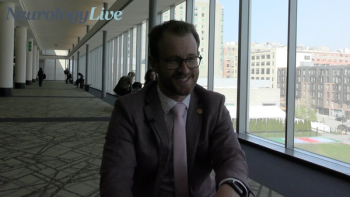
The neurologist at Mayo Clinic in Jacksonville Florida provided perspective on his talk given at the 2023 AAN annual meeting on rapidly progressive dementia. [WATCH TIME: 6 minutes]

Mind Moments®, a podcast from NeurologyLive®, brings you exclusive interviews with Michael H. Barnett, MBBS, PhD, FRACP; Nancy R. Foldvary-Schaefer, DO, FAAN; Sean J. Pittock, MD; Katherine W. Turk, MD; Erika U. Augustine, MD, MS; Jeffrey M. Statland, MD; and Chian-Chun Chiang, MD. [LISTEN TIME: 41 minutes]

Designed for self-directed use in a patient’s home or a healthcare facility, the Cumulus EEG device has potential to change the clinical trial landscape, allowing researchers to conduct more remote studies.

After 48 months of follow up, cipaglucosidase alfa/miglustat in cohorts of ambulatory patients with Pompe disease had an overall safety profile similar to the approved enzyme replacement therapy.

The associate professor of neurology at Mayo Clinic Rochester provided perspective on a new study presented at the 2023 AAN Annual Meeting assessing the treatment effectiveness of real-world patients with migraine. [WATCH TIME: 4 minutes]

Over 48 weeks of treatment, ALXN1480 was found to be generally well-tolerated, with improvements seen in Clinical Global Impression-Improvement scores and UWDRS Parts II and III.
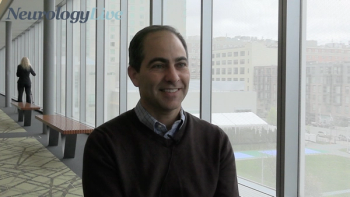
The associate professor of neurology at Harvard Medical School talked about the subgroup analysis on ravulizumab in NMOSD that was presented at the 2023 AAN Annual Meeting. [WATCH TIME: 5 minutes]

The 2-part study is intended to first establish safety and tolerability of multiple doses of CK0803, followed by efficacy analyses on several known ALS outcome measures.

Presented at the 2023 AAN Annual Meeting, remote electrical neuromodulation demonstrated itself as an effective and safe treatment for the prevention of migraine when applied every other day.
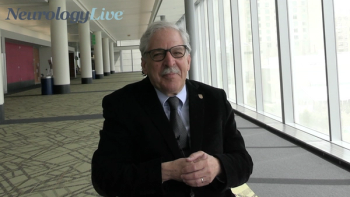
The neurologist from the Comprehensive Epilepsy Care Center for Children and Adults, in St. Louis, Missouri, talked about a few of the studies on cenobamate for epilepsy presented at the 2023 AAN Annual Meeting. [WATCH TIME: 6 minutes]

For those with an intermediate level of tau and clinical symptoms of Alzheimer disease, treatment with donanemab resulted in a 39% lower risk of progressing to the next stage of disease relative to placebo.
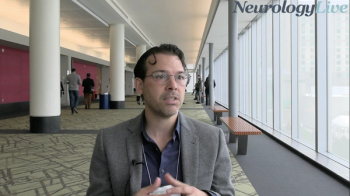
The neurologist at Montefiore Medical Center, Albert Einstein College of Medicine, discussed his experience in establishing a neurology department committee on diversity, equity, and inclusion. [WATCH TIME: 5 minutes]

The chief scientific officer at Alzheon discussed new, positive 12-month findings on ALZ-801, an investigational agent in development for patients with early-stage Alzheimer disease.

A group of experts in the care of patients with neurological conditions—Ali Jannati, MD, PhD; Madhav R. Thambisetty, MD, PhD; Daniel Ontaneda, MD, PhD; Peter J. Goadsby, MD, PhD, DSc; Andrew Russman, DO—shared their perspectives on hot topics of treatment and management in neurology from the 2023 American Academy of Neurology Annual Meeting.
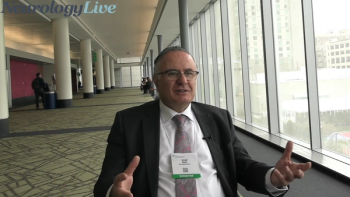
The director of Cleveland Clinic’s Epilepsy Center at the Cleveland Clinic Neurological Institute provided perspective on the in-depth testing neurologically healthy patients in the Brain Study will undergo. [WATCH TIME: 3 minutes]

Total disease burden, measured by the Facioscapulohumeral Muscular Dystrophy Health Index, was reduced by 19% over a 24-week period on recombinant human growth hormone.
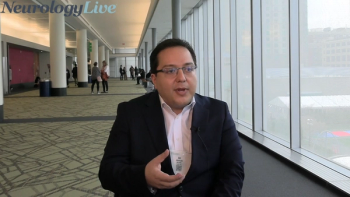
The manager of Clinical Development-Research at Linus Health discussed potential avenues of research for the DCTclock and expanding its capabilities as a potential detector of cognitive decline. [WATCH TIME: 3 minutes]

Higher adherence to Mediterranean Diet Adherence Screener independently predicted 20% lower risk for cognitive impairment among patients with MS.

As a recap from AAN 2023, get caught up on some of the latest news in neurology as the NeurologyLive® team shares some of our data updates.

Although it has the same ingredients as previously approved Xyrem, extended-release sodium oxybate is a medication taken once-nightly instead of twice-nightly.
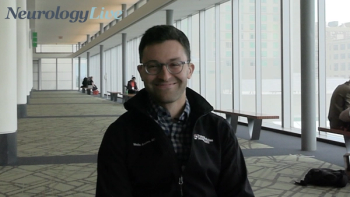
The neurology resident from the University of Pennslyvania talked about stroke prevalence in the United States between 1999 and 2018 as part of a presentation at the 2023 AAN Annual Meeting. [WATCH TIME: 6 minutes]

A statistically significantly higher proportion of patients, both with and without predose aura, achieved 2-hour relief of the most bothersome symptom with zavegepant.

Here's some of what is coming soon to NeurologyLive® this week.

The associate professor of neurology at the Cleveland Clinic Lerner College of Medicine of Case Western University provided commentary on the need for clinicians to be transparent with patients with MS about potential differences in disease course. [WATCH TIME: 3 minutes]

Experts review the state of SMA diagnosis and medications, highlighting factors that guide treatment selection in North America and South America.

Neurology News Network for the week ending April 30, 2023. [WATCH TIME: 4 minutes]

Test your neurology knowledge with NeurologyLive®'s weekly quiz series, featuring questions on a variety of clinical and historical neurology topics. This week's topic is the history of the American Academy of Neurology.